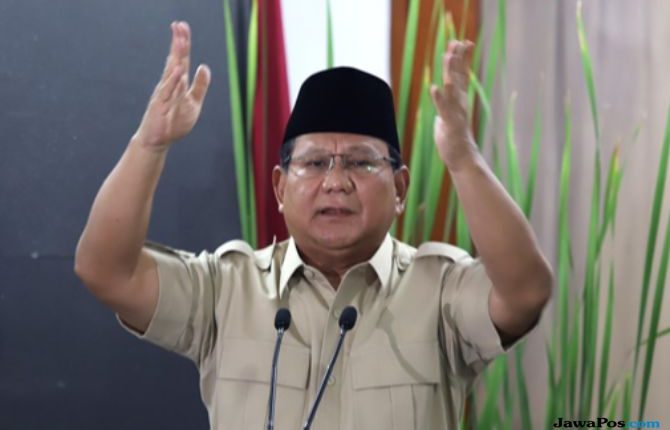Uniteds State’s Anxiety About Prabowo
Multiple media today highlight the issue of Prabowo Subianto’s closeness with the superpower of the United States which is suspected of having contributed to the nomination of Prabowo as a Presidential Candidate for 2019-2024. But in fact, the issue was brushed aside after the emergence of warnings from several United States of America on the predictions of Prabowo’s leadership if elected in the upcoming 2019 presidential election which was considered to be dangerous for the people of Indonesia.
Counter-evidence from Prabowo conducted by the United States since the news reported by the Wall Street Indonesian Journal regarding the official request of the US Ambassador to Indonesia, Robert Blake, to investigate Prabowo in relation to cases of human rights violations in the 1990s . This was also reinforced by the evidence of 34 secret United States documents that revealed a series of reports during the pre-reform period, one of which was that Prabowo Subianto was called to order Kopassus to forcefully eliminate activists in 1998 and the existence of divisions in the military. Documents released to the public by the National Security Archives (NSA) presented various types of reports in the period August 1997 to May 1999. Some were conversations by US Embassy staff in Jakarta with Indonesian officials, and other things were diplomat reports about the situation in Indonesia at that time. The NSA calls collaborating with the National Declassification Center (NDC) to digitize it to be accessible to the public.
This opened archive explains how the US Embassy read political events in the country, especially ahead of the fall of the New Order. The NSA explained how Bill Clinton, the US President at that time tried to maintain close relations with the Indonesian Armed Forces (ABRI). Even when the military was considered to have committed violations such as the kidnapping and disappearance of student activists that occurred at that time.
The archive dated May 7, 1998 also revealed staff records of the US Embassy in Jakarta regarding the fate of activists who suddenly disappeared. The note contains that activists who disappeared may be detained at Kopassus facilities on the old road that connects Jakarta and Bogor. The document also contains conversations from a US Embassy political officer in Jakarta with a student organization leader. The resource person claimed to have been informed by Kopassus that enforced disappearances were carried out by Kopassus Group 4. The information also stated that there was a conflict between the Kopassus division that Group 4 was still controlled by Prabowo.
US investigative journalist Allan Nairn also imagined that Prabowo Subianto would be very dangerous for human rights activists, journalists, laborers, poor people who tried to reject violations committed by officials, police, and thugs, if they were to become President of the Republic of Indonesia. . Allan Nairn considered Prabowo lying about his role in mass murder. He does not support the idea that anyone who kills must be brought to justice. Allan said he had to publish because Prabowo might be a very dangerous president, because Prabowo was the worst violator of human rights in Indonesia’s contemporary history. Seeing Prabowo’s international social action, Indonesia’s and foreign relations are feared to worsen. In 2000, Prabowo Subianto was banned from entering the United States for human rights violations. Prabowo Subianto’s past track record as a human rights criminal by the international world cannot be forgotten simply because it is a history inherent in him.
It is very fatal if Prabowo Subianto becomes the President of the Republic of Indonesia because the Indonesian people are not smart enough in choosing which leader is good for this nation. They don’t even have enough imagination to understand how it feels to live under authoritarian leadership. Democracy is at stake and this nation will return to a bleak period. There is nothing more dangerous for the NKRI than having fascist leaders, power hungry and violators of human rights.
(Ahmad Abdullah – FISIP Student at Muhammadiyah University of Yogyakarta)
